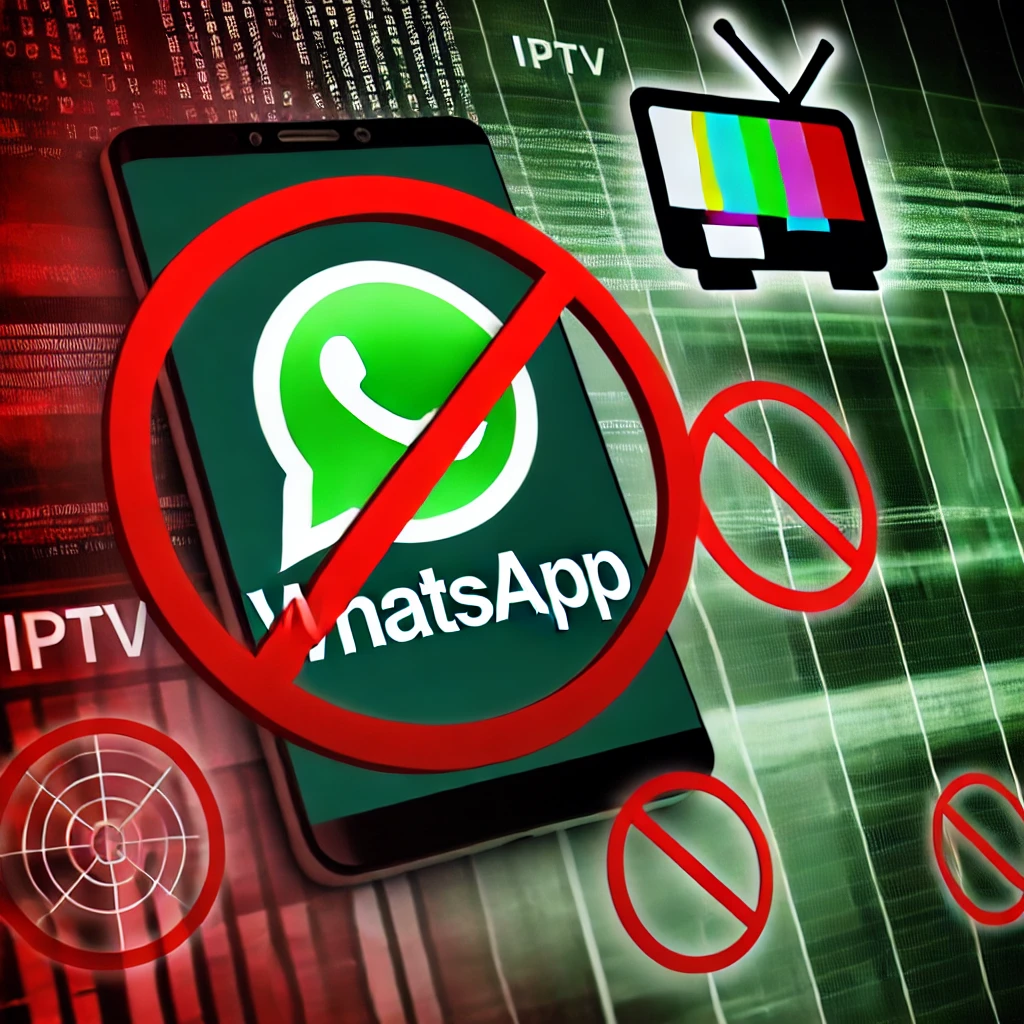
Why WhatsApp Bans IPTV Businesses: Understanding the Risks and Solutions
In recent years, IPTV services have become increasingly popular, offering users an alternative to traditional cable TV through internet-based streaming. However, for many IPTV sellers, there is a recurring issue: WhatsApp bans. If you’re in the IPTV business, you might have experienced this first-hand. But why does this happen, and how can you navigate these challenges?
Why WhatsApp Bans IPTV Sellers
WhatsApp, owned by Meta (formerly Facebook), operates under strict terms of service that aim to regulate and limit the misuse of their platform. Unfortunately, some IPTV businesses fall into gray areas of compliance due to a few key reasons:
1. Intellectual Property Concerns
IPTV services often include a wide range of content, from local channels to international streaming services, which can include copyrighted materials. While some IPTV providers are fully legal and licensed, others may distribute content without proper permissions. This leads to intellectual property concerns, making platforms like WhatsApp wary of facilitating such services.
WhatsApp’s policies prioritize compliance with international copyright laws, and distributing unlicensed content can be flagged as a violation. Even if your IPTV service is completely legitimate, the risk remains that some third parties may file complaints, prompting WhatsApp to take action.
2. Mass Messaging and Spamming
IPTV resellers often rely on WhatsApp for customer support, marketing, and sales. To reach a large audience, some businesses resort to bulk messaging. WhatsApp has an automatic detection system that flags accounts for mass messaging or suspected spamming behavior. As IPTV is a competitive market, some sellers may use aggressive marketing tactics, which can lead to account bans.
WhatsApp’s algorithms can detect unusual messaging patterns, including sending the same message to multiple people or groups in a short span of time. This behavior is classified as spamming, which violates WhatsApp’s guidelines and can result in an immediate ban.
3. Customer Reports
In some cases, users may report an IPTV seller’s WhatsApp account for unsolicited messages, poor service, or other grievances. When WhatsApp receives a certain number of complaints, they may review the account and, depending on the nature of the issue, suspend or ban the number.
4. Association with Fraudulent Activities
Unfortunately, IPTV services are sometimes linked with fraud or scams, particularly when customers don’t receive the service they paid for or if there’s a misunderstanding. These disputes may lead to complaints being filed with WhatsApp, and accounts involved in suspicious transactions can be flagged as a precaution.
How to Avoid WhatsApp Bans in the IPTV Business
While it can be frustrating to deal with WhatsApp bans, there are several measures you can take to prevent these issues from affecting your business:
1. Use Licensed and Legal Content
Ensure your IPTV service only distributes licensed content. If you’re sourcing content from questionable providers, this can increase the likelihood of complaints and intellectual property disputes, which may draw the attention of WhatsApp.
2. Avoid Bulk Messaging
Instead of sending mass messages, focus on building a customer base through direct interaction. You can use alternative tools like email marketing, social media ads, or website chatbots to engage potential customers without triggering WhatsApp’s anti-spam filters.
3. Provide Clear and Transparent Customer Support
Ensure your customers are satisfied with your service by offering prompt and transparent communication. If customers feel well-informed and supported, they are less likely to report your account to WhatsApp.
4. Utilize WhatsApp Business API
If your IPTV business is growing and you need to handle a large volume of customer interactions, consider using WhatsApp Business API. This is designed for businesses and allows more controlled and scalable messaging, reducing the risk of account suspension for inappropriate use.
5. Create Backup Communication Channels
While WhatsApp may be convenient, it’s always wise to have backup communication methods in place. Use platforms like Telegram, Facebook Messenger, or email to maintain contact with your customers in case of a WhatsApp ban. This helps prevent disruptions in your business.
Final Thoughts
For IPTV businesses, WhatsApp can be a powerful tool for customer support and marketing. However, it is essential to operate within the platform’s guidelines to avoid the risk of bans. By ensuring your business practices are compliant and taking steps to avoid spamming, you can continue using WhatsApp effectively without facing account restrictions.
If you’ve been banned, appeal the decision and work on resolving any issues with your service or messaging strategy. Remember, WhatsApp is just one tool in your communication arsenal—diversifying your approach can keep your IPTV business running smoothly.

